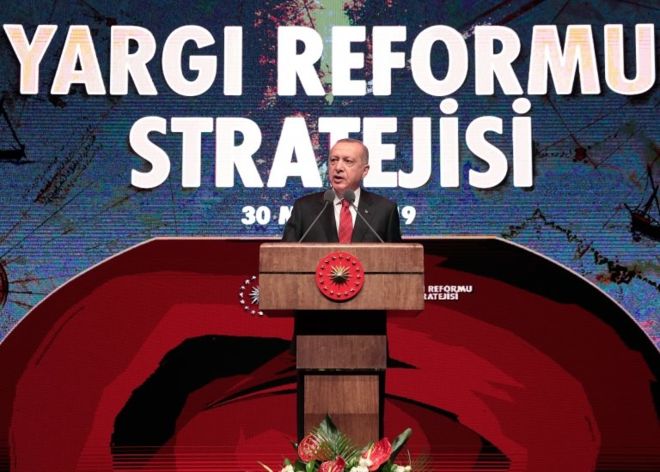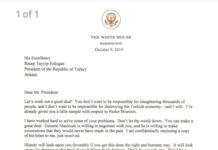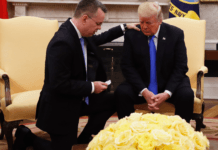
In every country, there are experts who closely follow diverse institutions, leading figures and developments in a range of sectors in other countries. In foreign office, intelligence departments, think tanks…
In times of the Cold War, following the Soviet Union at a certain level of expertise was a profession in the USA, and experts in this professional field were called ‘Kremlinologist‘. I am sure, there was some sort of term similar to this in the Soviet Union too, used for those professionals who followed developments in the USA closely.
This notion came to my mind when I was pondering upon present-day Turkey. I wonder what people think about us, who are known as ‘experts on Turkey’ and make a living from following our country closely, drawing up reports or making decisions on the basis of such expertise level reports while they lead their lives in their own countries.
Think a while on this question here by putting yourself into their shoes, then continue reading if you wish.
Confusing facts
President Tayyip Erdoğan introduced the new ‘judicial reform package‘ of his administration through a public speech the day before yesterday. The package includes promises about reforming a number of legislations and practices that have drawn sharp criticism at home and abroad.
The package has some shortcomings as well as some weaknesses that may lead to adverse results; but even it as is includes some changes that envisage overcoming a lot of troubles we experience today. The shortcomings and weaknesses may be dealt with during the legislative process in the parliament. If the promises were fulfilled, a large volume of the criticism would fade away by progress of time.
Improvements on the matters such as the imprisoned journalists, long detention periods and remands turning into a routine practice, to say the least, are expected to be materialized. President Tayyip Erdoğan also stated in his speech last evening that the matter of ‘amnesty‘ was in their agenda, too.
Very good; but it is a challenge indeed to know how to interpret all these announcements when we recall the outrageous reactions of the government officials in high administrative positions in the capital Ankara against the criticisms of the European Parliament, the European Commission and diverse institutions of the European Union directed at the very judicial practices which the reform package now promises us to deal with.
It was only a couple of days ago that the Foreign Office had shown a fierce reaction to the criticism directed at the Turkish justice system in the most detailed section of the progress report of the European Commission on Turkey.
Such criticisms are not limited to official announcements and reports of the European Union’s institutions. The US State Department publishes a report on human rights every year, and quite a comprehensive part of this report concerning Turkey contains criticisms that are directed mostly at ‘justice‘. It also evokes every time fierce reactions from official circles in Ankara.
This year in March the European Parliament, which had taken a fundamental decision with a clear majority about the accession of Turkey into the EU earlier, demanded ‘suspension of negotiations‘. The EU-Turkey Association Council meeting took place soon after this, and the EU officials entered the following criticisms in the register after the end of the meeting:
“We expressed our serious concerns about human rights and rule of law, including formal criminal charges imposed on the representatives of non-governmental organizations and the conviction of the journalists on February 18. We emphasized our concern about whether Turkish justice complies with the universal European standards. We have doubts about whether or not judicial processes in Turkey obey the principle of presumption of innocence and the right to a fair trial.”
The Foreign Minister Mevlüt Çavuşoğlu had reacted to these criticisms with an immediate response.
Now, however, the ‘judicial reform package‘ that was drawn up by the Minister of Justice Abdülhamit Gül and announced by President Erdoğan reveals an intention to do away with the criticisms that were expressed in March.
Put yourself into the shoes of an expert in Brussels, Washington or other parts of the world whose professional task is to follow Turkey: Wouldn’t you get crazy when you are exposed to such a radical change of mood within a few months?
Just imagine: The furious reactions of the capital Ankara to a report that you participated in the draw-up process on behalf of the institution you are part of only a short while ago are still fresh in your mind and ring in your ears, and now you are suddenly facing the promises for judicial changes that you had advised. I guess whom these promises would confuse most are the people known as ‘experts on Turkey‘.
I wonder if they have hesitated over believing these new promises or not.
Can we protest them if they met these all with hesitance and confusion?
According to what I hear, almost 200 individuals have been consulted during the preparatory process of the reform package…
This piece of information makes me glad.
When it is a matter of reform…
One of the most important reforms that our country has carried out until today was those changes in the Turkish Criminal Law (TCK) in 1991. Turgut Özal, after he became the president and his party Anavatan Party was still in power, instructed the Minister of Justice Mahmut Oltan Sungurlu to initiate an endeavor to change the three articles of the TCK that brought limitations on freedom of expression (the articles of 141, 142 and 163).
The TCK articles 141 and 142 would turn views and activities of the ‘left‘ into criminal deeds while the article 163 do the same for the ‘right‘. ‘Right-wing‘ and some ‘liberal‘ circles were against abolition of 141 and 142 arguing this would “pave the way to communism” when ‘left-wing‘ and some ‘liberal’ circles opposed abolition of 163 claiming that such a move would “open the door to followers of Sharia“.
Insistence of Özal and efforts of Minister Sungurlu proved to be effective, and those articles were abolished.
When I came together with the Minister of Justice Oltan Sungurlu in a meeting on his invitation in a state building of his ministry in Kızılay district of the capital, he told me he had wished to hear my support in my articles to the idea of the abolition of those articles while I was present in person.
I hope and assume that at least those people with presence of mind among the ones whom the present-day Minister of Justice came together to encourage the Minister by saying, “I strongly recommend that you materialize these changes.“
I wonder if the firm stand in 1991 will be exhibited again in 2019 by giving up those ill-legislations and practices that cause our country to be defenseless before the criticisms at home and abroad. Or, what we are now witnessing is hardly anything other than a tactic maneuver aiming to impress and attract their votes of those sections of society that are sensitive about freedoms when we are heading to the mayoral election of Istanbul that seems to be determined by a very small margin of votes?
I guess experts on Turkey in foreign countries are now pondering upon how to respond this question.
To tell the truth, the same question occupies my mind, too.
ΩΩΩΩ
[Translated by Bernar Kutluğ from the the article appeared in this site’s Turkish section on June 1, 2019]










